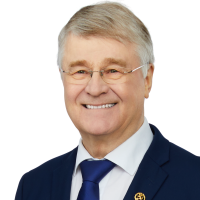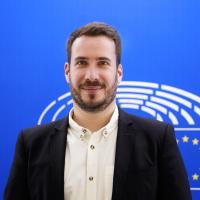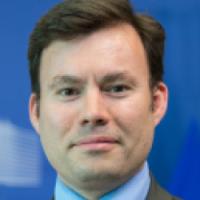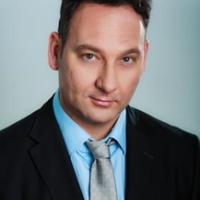A private S|B Network hybrid roundtable (14:00 – 16:45 CET)
With the EU and international partners still struggling to cope with the after-effects of the COVID pandemic and the Ukrainian conflict, among other crises, the challenges are rising on how to drive forward the transition to smarter, more sustainable and inclusive economies. One of the critical barriers to progress is skilled workers: according to some estimates, the talent shortage is predicted to reach over 14 million in Europe, the Middle East and Africa by 2030, while Eurostat indicates that only 37% of adults undertake training on a regular basis.
As the EU formally launches its European Year of Skills, these trends have specific resonance in the research and innovation domain. Both mature and emerging sectors, such as pharmaceuticals, robotics, advanced computing and 6G communication technologies, are facing significant shortfalls of highly skilled scientists, technicians and developers, and unprecedented levels of competition from other regions and countries to secure and retain the talent that exists. By extension, within the EU longstanding issues remain around R&D skills circulation and concentration, wage disparity between private and public sectors, the scale and scope of reskilling and upskilling programmes, and aligning long-term market demand with short-term innovation in higher education and training.
Nonetheless, the EU is aiming high: in its social targets by 2030 it aims to reach i) at least 78% of people aged 20 to 64 in employment (it currently sits at 73.1%) and ii) at least 60% of all adults participating in training every year. However, at the front of the effort stands the most important objective: nurturing and retaining strategic talent. The EU’s bet on its research and industrial systems to deliver on the digital and green transition will rest on the capacity not only to form, but also to successfully deploy a skilled workforce. As shown by EU official statistics, 77% of companies have reported “difficulties in finding workers with the necessary skills”1, and the projected rise of skills shortages and mismatches endanger the wider EU goals.
Against this backdrop, a number of cross-cutting questions emerge. First and foremost among them, can the EU, member-states and regions agree on a sustainable investment strategy for skills and talent that mitigates brain drain? On April 25, Science|Business will convene a high level debate on the way forward with experts from its Network members, EU institutions, national governments, and other key stakeholders.







13:30 Registration & coffee
14:00 Welcome & introduction
14:05 Mind the gap: Can Europe align around a long-term vision for R&D talent?
The first half of the roundtable will explore the political and policy challenges to develop a coherent strategy to tackle R&D talent deficits across European, national and regional levels. Among the topics to be considered:
- Has a (political) tipping point been reached in understanding the critical importance of R&D talent to a sustainable future, not least in driving the green and digital transitions?
- Can the European Year of Skills inspire decision-makers to agree on a new long-term vision and plan to deliver? Are tangible new programmes and initiatives being developed to tackle key issues, both at systems and grassroots levels?
- What will the EU need in its toolbox to address the talent crisis? How can greater synergies and impacts be achieved from the instruments and approaches currently being deployed?
- Is it realistic to expect countries and regions to cooperate in R&D talent development, instead of competing for the scarce resources available? If so, are there compelling models and approaches to follow?
Featured speakers:
- Markku Markkula – Vice President, European Committee of the Regions
- João Albuquerque – Member & Shadow Rapporteur, European Year of Skills, European Parliament
- Manuela Geleng – Director, Jobs & Skills, DG Employment, European Commission
15:15 Coffee break
15:30 Unmet needs: What do R&I leaders require to navigate their way through the crisis?
The second half of the roundtable will delve deeper into the ‘real world’ talent issues confronting research funding and performing organisations today, and explore the views of key stakeholders on innovative yet practical ways to deepen the R&D talent pool and access to skilled workers. Among the themes to be explored:
- What does the current crisis imply for R&D talent pipelines, training and career development? Is a better balance needed between specialised skills and competences that can be transferred across sectors?
- In which ways can the structural links between research, innovation and education systems, and indeed industry and academia be strengthened? What can be learned from existing “success stories”, such as the EIT and COST Association, and effectively scaled up across Europe?
- Is it realistic to envisage a new “virtuous circle” of talent sharing between the worlds of science and industry?
- Which mix of incentives can help to retain maintain Europe as one of, if not the world’s leading destination for talent in critical technology sectors?
Featured speakers:
- Manuel Aleixo, Head of Unit, ERA and Innovation, DG RTD, European Commission
- Lina Gálvez Muñoz – Member, European Parliament
- Márton Herczeg – Head, Innovation Ecosystem Unit, European Institute of Innovation and Technology
- Ronald de Bruin, Director, COST Association
16:45 End of roundtable, followed by short networking reception
For more information, please contact Sara Crepaldi at [email protected]
Partners


 A unique international forum for public research organisations and companies to connect their external engagement with strategic interests around their R&D system.
A unique international forum for public research organisations and companies to connect their external engagement with strategic interests around their R&D system.